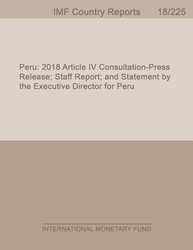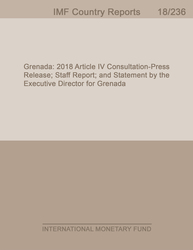
Malawi:Request for Disbursement Under the Rapid Credit Facility and Request for a Staff Monitored Program with Executive Board Involvement-Press Release; Staff Report; and Statement by the Executive Director For Malawi
Foreign exchange shortages together with exchange rate misalignment led to a sharp decline in imports including fuel, fertilizer, medicine, and food.
READ MORE...
Volume/Issue:
Volume 2022
Issue 352
Publication date: November 2022
ISBN: 9798400225970
$20.00
Add to Cart by clicking price of the language and format you'd like to purchase
Available Languages and Formats
| English |
Prices in red indicate formats that are not yet available but are forthcoming.
Topics covered in this book
This title contains information about the following subjects.
Click on a subject if you would like to see other titles with the same subjects.
Banks and Banking , Exports and Imports , Money and Monetary Policy , Public Finance , Business and Economics - Statistics , International - Economics , debt restructuring strategy , financing gap , government subsidy program , debt advisor , track-record building SMP , Debt sustainability , International reserves , Debt service , Africa , Global , Southern Africa
Also of interest
Summary
Foreign exchange shortages together with exchange rate misalignment led to a sharp decline in imports including fuel, fertilizer, medicine, and food. Large fiscal deficits, nearly 10 percent of GDP in FY2021/22, have been largely financed by domestic bank borrowing, resulting in rapid money growth and inflation of 25.9 percent in September 2022. Exchange rate pass-through and hikes in food prices added to inflationary pressure. In addition, food insecurity in Malawi has increased dramatically under the impact of multiple tropical storms, below-average crop production, and increasing prices for food and agricultural inputs such as fertilizer and seeds. The latter are expected to affect the current planting season. As a result of these factors, about 20 percent of the population is projected to be acutely food insecure during the upcoming 2022/23 lean season (October 2022-March 2023), more than twice as many as in 2021.
Copyright © 2010 - 2026
Powered by:
AIDC



